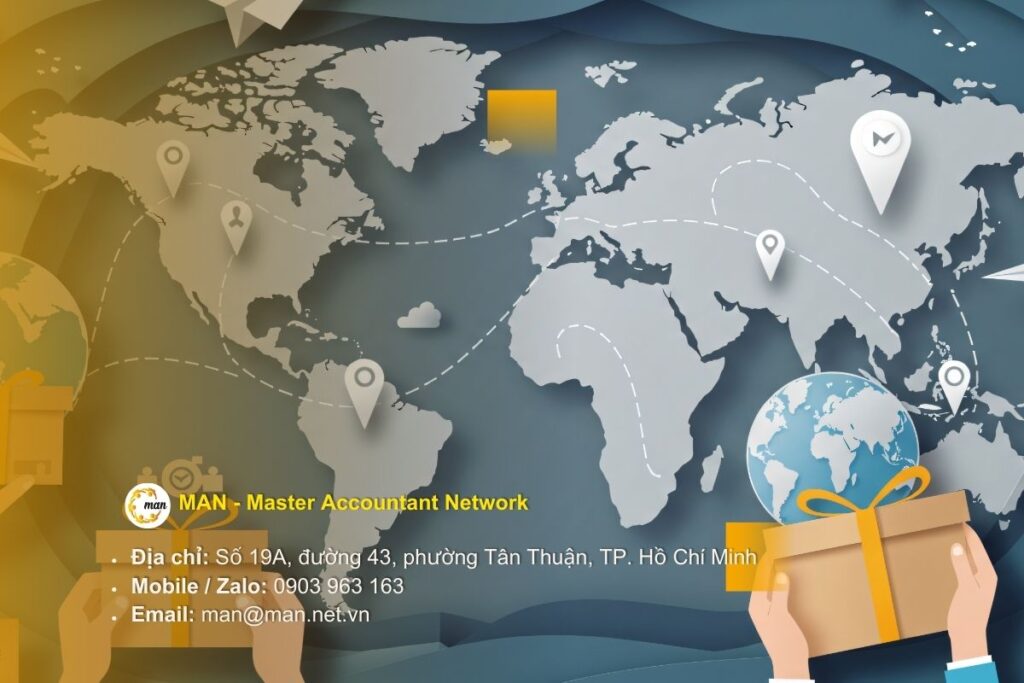Learn more about Decree 20/2025/ND-CP: new regulations, declaration obligations, documents affiliate transactions, penalties for violations and effective compliance solutions for businesses. On March 27, 2025, the Government of Vietnam issued Decree 20/2025/ND-CP to amend, supplement and replace a number of provisions in Decree 132/2020/ND-CP on tax management for enterprises with related-party transactions.
The objective of promulgating Decree 20/2025/ND-CP is:
- Prevent transfer pricing that causes budget loss.
- Make tax obligations transparent and help tax authorities easily control transaction prices.
What is Decree 20/2025/ND-CP?
Decree 20/2025/ND-CP is a new legal document of the Vietnamese Government, specifically regulating the principles and methods of determining transfer pricing, the obligation to declare and prepare documents, as well as sanctions if enterprises violate. The Decree applies to all enterprises that have related-party transactions from the tax period starting in 2025.
Who is required to comply?
Any enterprise (including domestic or foreign capital) that has transactions with related parties according to prescribed criteria, for example:

- One party owns 25% of the other party's capital contribution.
- Have the right to control production, business or operations.
- There are loans exceeding 25% of equity and accounting for over 50% of total medium and long-term debt.
What is affiliate trading?
Affiliate transactions are transactions that take place between related parties in the production and business process. These parties can be parent-subsidiary companies, companies with the same manager, or companies that are mutually dependent on each other in terms of capital and management. Decree 132/2020/ND-CP of the Government provides detailed regulations on related party transactions, especially regulations on tax management for these transactions.
The following are specific and most common situations, illustrating each type of related party transaction arising in business activities.
Related transactions involving capital:
- Parent company A contributes capital in cash or assets to subsidiary company B at a value much higher than the market price.
- Company B transferred all shares to affiliated company C at a price lower than the transaction price with the independent party.
- Individual X bought 33% shares of company T from his younger brother at a special preferential price.
Related transactions involving borrowing:
- Company M borrows money from its parent company at an interest rate of 3%/year while the market lending rate is 8%/year.
- Shareholder Y lends to company H at an interest rate of 2% while commercial loans apply an interest rate of 9%/year.
- Company S borrowed money from the Director's brother without collateral.
- Company K was lent 75% by the bank with collateral value thanks to the guarantee of the parent company.
Related transactions related to asset leasing:
- Company P leases its factory to subsidiary Q for 7 million VND/month, 50% lower than the rental price with outside partners.
- Company R leases a car to shareholder Z for 5 million VND/month even though the market price is 12 million VND/month.
- Company U leased business premises to the Director's sister for 2 years without collecting any fees.
The above are just some typical examples. In reality, related party transactions can take place in many different forms and situations. Enterprises need to carefully evaluate the nature, objects, and value of each transaction to correctly identify related party transactions.
What is new in Decree 20/2025/ND-CP compared to Decree 132/2020/ND-CP?
The outstanding new points of Decree 20/2025/ND-CP compared to Decree 132/2020/ND-CP are summarized as follows:
- Add related party definition: expand to independent accounting branch if conditions are met.
- Adjust capital and loan criteria to suit reality.
- Exclude certain bank loans from the scope of related transactions.
- Updated application and declaration forms according to OECD standards, more details on financial information and corporate structure
What does a related party transaction profile include?
Related party transaction dossiers under the new regulations of Decree 20/2025/ND-CP fully include the following data:
- Declaration of information on related transactions (new form attached to the decree).
- Local file with detailed information on the business's own operations and related transactions in Vietnam, analysis of functions, risks and assets of related parties.
- Master file for businesses that are members of multinational corporations, providing a comprehensive view of organizational structure, business operations, transfer pricing policies, intangible assets, profit allocation and consolidated financial statements.
- Country-by-Country Report (CbCR, Form No. 03), applicable to multinational corporations with consolidated revenue of VND 18,000 billion or more.
What is the roadmap for applying Decree 20/2025/ND-CP?
According to Decree 20/2025/ND-CP, the new regulations will take effect from March 27, 2025. Enterprises must prepare documents and data systems for related-party transactions from the 2024 accounting period, even though the time for submitting declarations is 2025.
Expenses, especially interest expenses exceeding the control limit from previous years, will be handled according to the new transitional regulations.
Enterprises need to review contracts, loan structures, affiliate relationships and transfer pricing documents to ensure they meet new standards when submitting declarations.
Do bank loans have to be declared?
If an enterprise borrows capital from a commercial bank, credit institution or financial institution that has no affiliated relationship with the enterprise (i.e. does not directly or indirectly hold capital, does not influence the management, operation or financial policies of the enterprise), then that loan is not considered an affiliated transaction.
Even if the loan value exceeds the declaration threshold according to general regulations (for example, the total outstanding debt or total interest expense exceeds the level specified in the Decree).
The reason is that loans from independent parties are made on the basis of market principles, subject to supervision by the banking system and specialized laws, so they are not within the scope of management of transfer pricing.
What is the penalty for businesses if they do not comply?
The risk of tax arrears and fines is clear. When the tax authority conducts an inspection, if it discovers that the business does not have records or records are not properly prepared.

According to the law, the penalty for corporate income tax (CIT) arrears is prescribed in Article 126 of the Law on Tax Administration 2019 about the penalty as follows:
“In case the taxpayer commits tax evasion or tax fraud, he/she shall be fined 20% the amount of tax evaded.
In case the taxpayer pays tax late compared to the prescribed deadline, he/she will be fined for late payment equal to 0.03% per day calculated on the amount of late tax payment.
In case the taxpayer declares incorrectly leading to a shortage of tax payable, he/she will be fined 10% for the amount of tax owed.
In case the taxpayer does not pay tax or does not pay enough tax to the extent of being subject to collection, he/she shall be fined 10% the amount of tax underpaid.
In case the taxpayer makes an incorrect declaration leading to a shortage of tax payable but has paid the full amount of tax payable according to regulations, he/she shall be fined 0.05% per day calculated on the amount of tax shortfall but has been paid in full"
Methods for determining transfer pricing in the new decree?
Decree 132/2020/ND-CP has been mentioned (still in effect according to the content inherited from Decree 20/2025/ND-CP). Enterprises must choose a method of determining price appropriate to the nature of the transaction, avoiding taking advantage of related relationships to reduce tax obligations. Some methods considered are:
Comparable Uncontrolled Price (CUP) method
This method compares the price of a related party transaction with the prices of similar transactions between independent parties. This method is considered the gold standard if there is reliable comparable data.
Resale Price Method (RPM)
This method is appropriate when the affiliate purchases goods and resells them without adding much labor or logistics. The independent affiliate's resale price, minus the usual profit margin, is the basis for determining the internal purchase price.
Cost Plus Method (CP)
This method is suitable in cases where the supplier only performs a manufacturing or supply function. The price is calculated by adding a reasonable profit margin (usually based on a comparison with similar independent enterprises).
Transactional Net Margin Method (TNMM)
TNMM compares the net profit margin on sales or assets between related-party transactions and comparable independent businesses. This method is useful when direct price data are not available, but the true profit from a particular production or service function can be determined.
Profit Split Method
In complex transactions where it is not possible to separate functions, assets or risks between the parties, the profit sharing method is applied. Accordingly, the profit from the transaction documents is divided among the parties according to the respective contribution ratio (based on costs, assets, functions, risks, etc.). This is the most complex method but also fair in many specific cases.
When to choose the right method?
To ensure that prices in related-party transactions reflect the Arm's Length Principle, Decree 132/2020/ND-CP stipulates five methods for determining prices. Each method has its own scope of application, depending on the nature of the activity, comparative data and industry characteristics.
The table below summarizes the methods and typical application cases, helping businesses easily choose the appropriate option when declaring and preparing documents:
Method | Apply appropriately |
| CUP | When there is reliable independent transaction price data available. |
| RPM | When the business is just buying and reselling (not adding much functionality.) |
| CP | When the business only performs pure production or supply functions. |
| TNMM | When price data is not available, but independent profit figures are available for comparison. |
| Profit Split | When the transaction is complex, the functions and risks are shared between the parties. |
Thus, it can be seen that each method of determining transfer pricing has its own scope of application and data conditions. Enterprises need to consider the nature of the transaction, the functions - risks of each party and the ability to access comparative data to choose the most suitable method. Correct application of the method not only ensures compliance with the provisions of Decree 132/2020/ND-CP and updates from Decree 20/2025/ND-CP, but also helps enterprises manage tax risks effectively and transparently in business operations.
For specific advice, as well as answers to business questions Please contact MAN – Master Accountant Networka:
- Address: No. 19A, Street 43, Tan Thuan Ward, Ho Chi Minh City.
- Mobile/zalo:+84 (0) 903 963 163 or +84 (0) 903 428 622
- Email: man@man.net.vn
Through the frequently asked questions above, it can be seen that the legal framework on related party transactions in Vietnam is increasingly complete, both tightening management and creating favorable conditions for businesses. However, in practice, applying the right regulations, choosing the right pricing method and preparing complete documents are still significant challenges for many businesses. This is the time to have an overall perspective to draw lessons and orient appropriate solutions for the future.
Conclude
Compliance with Decree 20/2025/ND-CP not only helps businesses avoid legal risks but also contributes to enhancing reputation and ensuring transparency in financial management. Early and complete preparation is a key factor for businesses to operate sustainably in an increasingly strict business environment regarding tax management.
Editorial Board: MAN – Master Accountant Network




